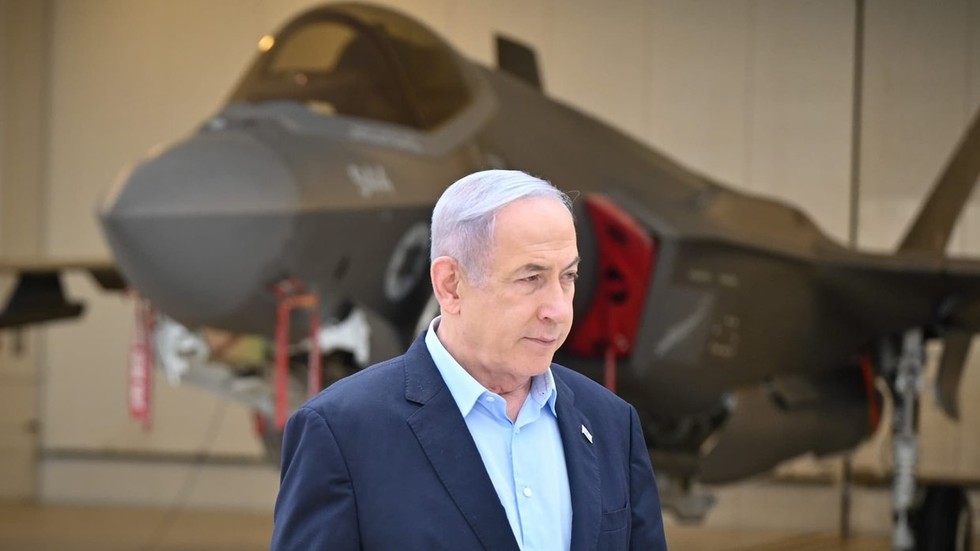Israeli Prime Minister Benjamin Netanyahu has openly criticized French President Emmanuel Macron’s remarks advocating for an arms embargo against Israel amidst the ongoing conflict with Hamas and rising tensions with Hezbollah and Iran. In an interview, Macron emphasized the need for a political resolution to the Middle Eastern conflict and called for Western nations to halt arms deliveries to Israel, labeling the ongoing hostilities a significant error. He expressed concerns about the potential for Lebanon to become “a new Gaza,” further escalating the already volatile situation. In response, Netanyahu took to social media platform X (formerly Twitter) to personally rebut Macron’s stance, framing Israel’s conflict as a critical battle against various adversaries, including Hamas, Hezbollah, Iranian forces, and other anti-Israel factions.
Netanyahu claimed that Israel is courageously defending itself on multiple fronts against what he labeled “the enemies of civilization.” He argued that it is the responsibility of all civilized nations to support Israel during these challenging times. The Israeli Prime Minister’s response highlights the intensity of the conflicts surrounding Israel, where he perceives Western nations’ calls for arms embargoes as a betrayal. He condemned Macron and other Western leaders, referring to their requests as “shameful” and a disgraceful stance towards Israel’s fight for survival. Netanyahu asserted with defiance that Israel will prevail in its struggles, regardless of external support, and underscored that the shame associated with such calls for embargoes would linger far beyond any military victory Israel might achieve.
The backdrop to this escalating rhetoric is the ongoing war between Israel and Hamas, which has entered its second year, having resulted in the deaths of over 41,000 Palestinians. This violence was ignited by a surprise attack from Hamas on October 7, 2023, which led to significant Israeli casualties, with around 1,100 reported deaths and countless individuals taken hostage. In the weeks following this event, Israel has intensified military operations against Hamas in Gaza and expanded its military focus to include targets linked to Hezbollah in Lebanon. These operations have included aerial bombardments and cross-border ground raids aimed at neutralizing rocket attacks and other threats posed by Hezbollah, which has been actively supporting Hamas.
The Israeli government has posited that its military actions are essential for maintaining security and facilitating the safe return of approximately 70,000 displaced Israelis living in the northern regions of the country. However, this campaign has had severe humanitarian implications for Lebanon, as official reports indicate over 2,000 casualties resulting from Israeli strikes, alongside massive displacements affecting more than 1.2 million people. The stark contrast between military objectives and humanitarian consequences raises pressing questions about the conflict’s wider ramifications, with more civilians bearing the brunt of the violence. The humanitarian toll in Gaza and Lebanon adds complexity to the geopolitical landscape, underlining the dire need for dialogue regarding a resolution to the crisis.
Furthermore, Macron’s call for an arms embargo against Israel underscores a growing rift between Western leaders and the Israeli administration regarding their approach to the escalating violence. Macron’s emphasis on diplomacy and peace talks reflects a concern among some global leaders about the potential for expanding regional conflicts and the transformation of Lebanon into a battleground similar to Gaza. This call for restraint comes in the context of widespread international concern regarding humanitarian crises and civilian casualties in areas heavily affected by the fighting. As countries navigate their foreign policies amid this pressing conflict, balancing the ethical implications of military support with the geopolitical realities remains a contentious challenge.
As tensions rise between Israel and its adversaries, the discourse surrounding international military aid and arms deliveries is increasingly fraught with complications. The divergent views of Western leaders, as exemplified by Macron’s position, highlight the broader international debate regarding the ethics of supplying arms to nations engaged in conflicts characterized by significant civilian suffering. Netanyahu’s forceful rejection of calls for arms embargoes illustrates his administration’s determination to portray Israel’s military actions as legitimate self-defense in the face of persistent threats. The clash of perspectives reveals the complex interplay between the pursuit of national security and the humanitarian crisis unfolding in the region, leaving open questions about possible pathways toward a more peaceful resolution to the escalating violence.

